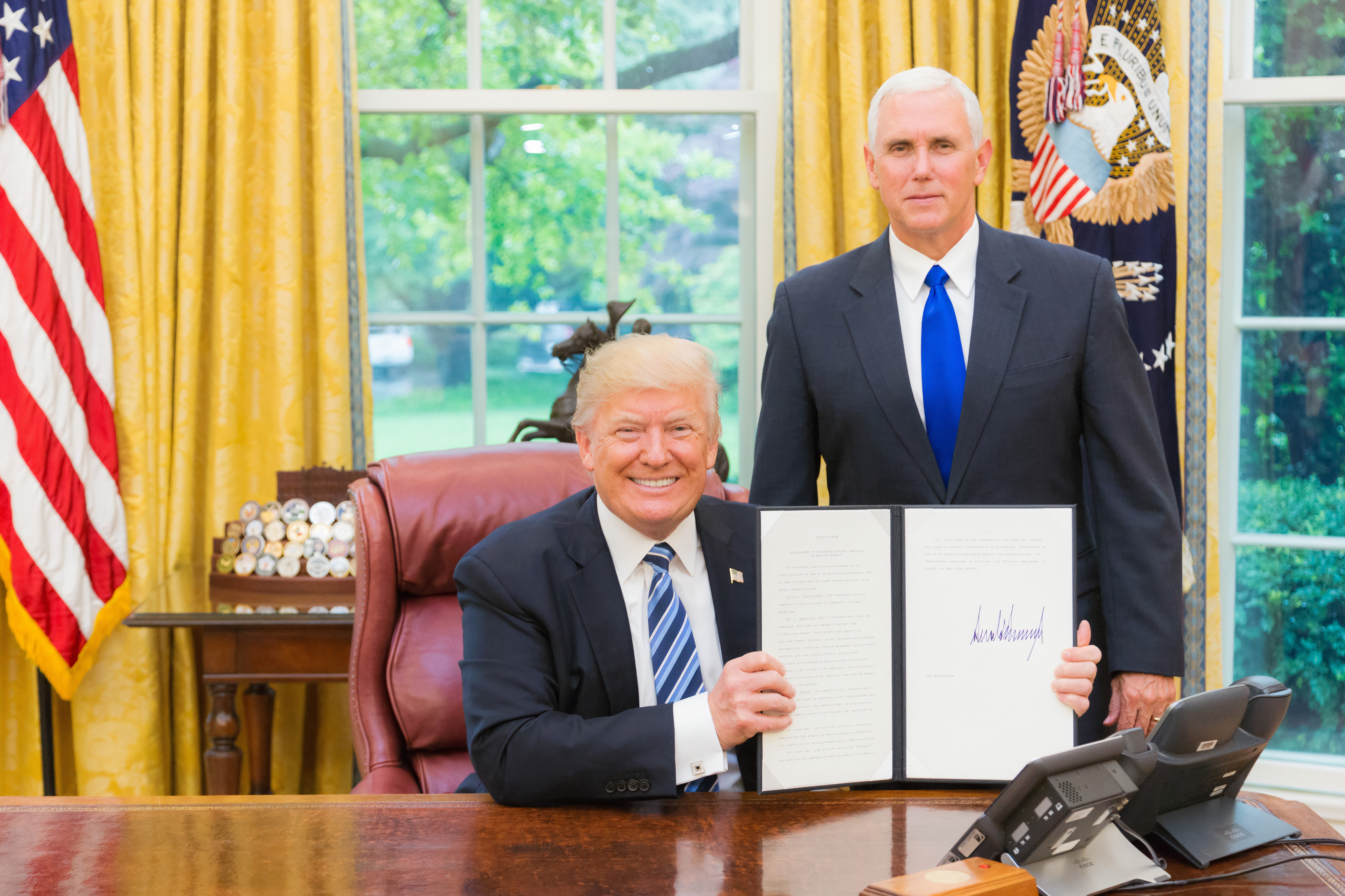Presidency of Donald Trump
Donald Trump's tenure as the 45th president of the United States began with his inauguration on January 20, 2017, and ended on January 20, 2021. Trump, a Republican from New York City, took office following his Electoral College victory over Democratic nominee Hillary Clinton in the 2016 presidential election, in which he did not win a plurality of the popular vote. Upon his inauguration, he became the first president in American history without prior public office or military background. Trump made an unprecedented number of false or misleading statements during his campaign and presidency. His presidency ended with defeat in the 2020 presidential election to Democrat Joe Biden after one term in office.
Trump was unsuccessful in his efforts to repeal the Affordable Care Act but took measures to hinder its functioning and rescinded the individual mandate. Trump sought substantial spending cuts to major welfare programs, including Medicare and Medicaid. He signed the Great American Outdoors Act, reversed numerous environmental regulations, and withdrew from the Paris Agreement on climate change. He signed criminal justice reform through the First Step Act and appointed Neil Gorsuch, Brett Kavanaugh, and Amy Coney Barrett to the Supreme Court. In economic policy, he partially repealed the Dodd–Frank Act and signed the Tax Cuts and Jobs Act of 2017. He enacted tariffs, triggering retaliatory tariffs from China, Canada, Mexico, and the EU. He withdrew from the Trans-Pacific Partnership negotiations and signed the United States–Mexico–Canada Agreement, a successor agreement to NAFTA. The federal deficit increased under Trump due to spending increases and tax cuts.
He implemented a controversial family separation policy for migrants apprehended at the U.S.–Mexico border. Trump's demand for the federal funding of a border wall resulted in the longest US government shutdown in history. He deployed federal law enforcement forces in response to the racial unrest in 2020. Trump's "America First" foreign policy was characterized by unilateral actions, disregarding traditional allies. The administration implemented a major arms sale to Saudi Arabia; denied citizens from several Muslim-majority countries entry into the U.S; recognized Jerusalem as the capital of Israel; and brokered the Abraham Accords, a series of normalization agreements between Israel and various Arab states. His administration withdrew U.S. troops from northern Syria, allowing Turkey to occupy the area. His administration also made a conditional deal with the Taliban to withdraw U.S. troops from Afghanistan in 2021. Trump met North Korea's leader Kim Jong-un three times. Trump withdrew the U.S. from the Iran nuclear agreement and later escalated tensions in the Persian Gulf by ordering the assassination of General Qasem Soleimani.
Robert Mueller's Special Counsel investigation (2017–2019) concluded that Russia interfered to favor Trump's candidacy and that while the prevailing evidence "did not establish that members of the Trump campaign conspired or coordinated with the Russian government", possible obstructions of justice occurred during the course of that investigation.
Trump attempted to pressure Ukraine to announce investigations into his political rival Joe Biden, triggering his first impeachment by the House of Representatives on December 18, 2019, but he was acquitted by the Senate on February 5, 2020.
Trump reacted slowly to the COVID-19 pandemic, ignored or contradicted many recommendations from health officials in his messaging, and promoted misinformation about unproven treatments and the availability of testing.

Comments(0)